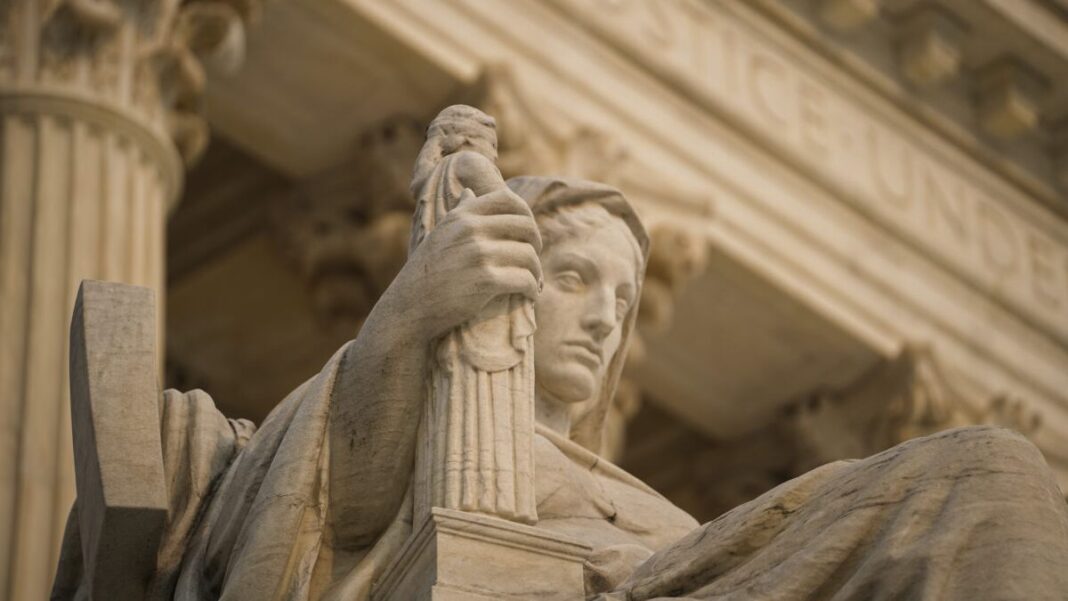The Supreme Court is scheduled to decide as soon as this week if it will hear a case about whether individuals suffering from gender dysphoria are protected by the Americans with Disabilities Act (ADA).
The petition (pdf) in the case Kincaid v. Williams (court file 22-633) was filed in January.
The respondent, Kesha Williams, a former detainee in Fairfax County, Virginia, who was born male and now identifies as female, is suing the petitioner, Stacey Kincaid, a Democrat, in her official capacity as the county’s sheriff.
Williams suffers from gender dysphoria, which can be defined as “discomfort or distress that is caused by a discrepancy between a person’s gender identity and that person’s sex assigned at birth.” Williams claimed he was mistreated and discriminated against while in the custody of the county, which failed to take his wish to have his female identity acknowledged into account.
A lack of linguistic clarity has clouded legal issues in recent years as the concepts of sex and sexual identity or gender have become difficult to separate. Despite the distinct usual meanings of “sex” and “gender,” many institutions and individuals use “gender” to mean biological sex.
The Supreme Court has previously ventured into the culturally contentious realm of gender identity.
The court ruled 6–3 in June 2020 that employees can’t be fired from their jobs because of discrimination over their sexual orientation or gender identity. The court embraced the concept of gender identity, which critics say is a social malaise that has been politicized, with solutions that haven’t been based on rigorous science.
The landmark ruling three years ago in Bostock v. Clayton County, which bundled three cases together, brought an expanded meaning to the phrase “on the basis of sex” that appears in the nondiscrimination provisions of the Civil Rights Act of 1964.
Former funeral home employee Aimee Stephens, who was born male and was formerly known as William Anthony Beasley Stephens, informed his employer that he planned to dress as a woman at work. The Christian owner of the business said he was free to do so in his private life, but not at work because presenting as a woman would upset mourners. The Supreme Court ruled in favor of Stephens.
In the area of LGBT law, in 2015, the court gave same-sex couples the right to marry in the 5–4 decision of Obergefell v. Hodges.







